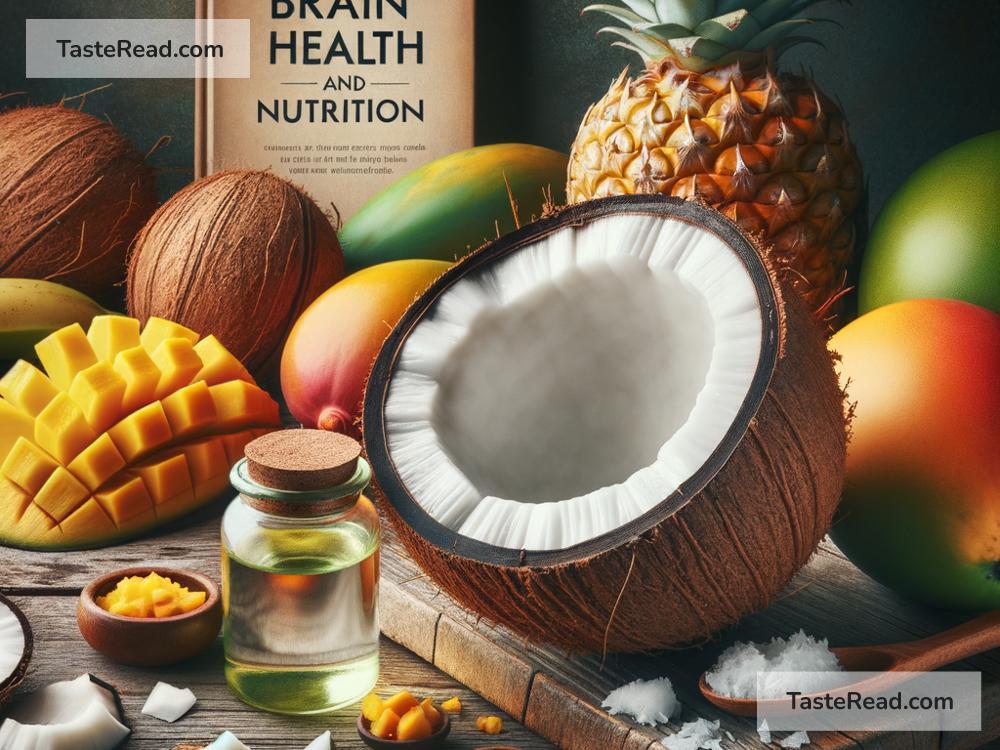The Surprising Connection Between Coconuts and Brain Health
When you think of coconuts, you probably picture tropical beaches or sweet treats like coconut macaroons. But did you know that coconuts may play an important role in keeping your brain healthy? It turns out, these hard-shelled fruits are more than just tasty—they’re full of nutrients that can boost brain function and even help protect against diseases like Alzheimer’s. Let’s dive into the surprising connection between coconuts and your brain.
How Is Coconut Good for the Brain?
Coconuts contain several key ingredients that make them beneficial for brain health. The most important is medium-chain triglycerides, also known as MCTs. This special type of fat, found in coconut oil, is what makes coconuts unique when it comes to supporting brain function.
When you eat food, your body usually converts carbohydrates into glucose for energy. Your brain depends heavily on this glucose to keep you thinking, learning, and solving problems. However, what happens when your body doesn’t have enough glucose? That’s where MCTs come in. They’re quickly converted into compounds called ketones, which your brain can use as an alternative source of energy. Ketones are like fuel for the brain, keeping it sharp and active even when glucose levels are low.
Now, you might be wondering: Is this relevant for everyone or just people on low-carb diets like keto? Actually, MCTs from coconuts can benefit anyone, regardless of diet. Even if you don’t follow a strict keto plan, adding MCT-rich foods to your daily nutrition can help support your brain health.
Could Coconuts Help Prevent Brain Diseases?
Some researchers believe that coconuts might play a role in preventing neurological diseases, like Alzheimer’s and Parkinson’s. These diseases happen when the brain starts struggling to process glucose effectively, which can lead to memory loss and other cognitive issues.
Because ketones provide an alternative energy source for the brain, some experts suggest that coconut oil (rich in MCTs) could help prevent or slow the progress of such diseases. For example, in early studies, patients with mild Alzheimer’s who were given coconut oil showed some improvement in their memory and thinking skills. While these studies are small and ongoing, they provide exciting evidence that coconuts may have potential as a natural tool for brain health.
The Role of Antioxidants in Coconut
Another reason coconuts are brain-friendly is because of their antioxidant properties. Coconuts contain compounds that help reduce inflammation and protect cells from damage caused by free radicals. Free radicals are unstable molecules that can harm your cells over time, including the ones in your brain. This “oxidative stress” is linked to aging and the development of many diseases, including those that affect the brain.
Antioxidants found in coconuts may help fight this stress, keeping your brain healthier for longer. Coconut milk, coconut water, and raw coconut flesh all contain antioxidants that work as little defenders for your cells.
Mental Boost from Coconut Oil
A popular way people incorporate coconut into their diets is by using coconut oil. While it’s often used for cooking, some people simply take a spoonful of coconut oil as a quick energy and brain boost. Because MCTs are absorbed quickly, coconut oil can provide a fast pick-me-up for your mind. Many fans say it helps them focus better, stay alert, and feel more mentally clear.
Some research also suggests that MCTs in coconut oil might improve mood. While more studies are needed, early results show that these fats can have a stabilizing effect on depression and anxiety. This connection may be due to the ability of MCTs to balance hormones and reduce inflammation in the brain.
How to Add Coconut to Your Diet for Brain Health
If the idea of coconuts supporting brain health sounds exciting, you’re probably wondering how to get started. Here are some simple ways to weave coconut into your daily diet:
-
Use Coconut Oil for Cooking: Replace your regular cooking oil with coconut oil. It’s great for stir-frying vegetables or drizzling over roasted potatoes.
-
Drink Coconut Water: Coconut water is a refreshing option that hydrates while providing antioxidants.
-
Add Coconut Milk to Smoothies: Use coconut milk as the base for your smoothies or coffee creamer. It’s creamy and delicious.
-
Snack on Raw Coconut: Fresh coconut chunks make an excellent snack. They’re packed with fiber, healthy fats, and antioxidants.
-
Try Coconut Flour for Baking: Coconut flour adds a unique flavor to baked goods and gives you a dose of coconut goodness.
Remember, while coconuts can be beneficial for your brain, moderation is key. Coconut products are high in fats, which can add up quickly. Balance them with a healthy diet full of fruits, vegetables, lean proteins, and whole grains.
Final Thoughts
Coconuts are much more than a tropical fruit—they are a potential powerhouse for brain health. From MCTs to antioxidants, the nutrients in coconuts may improve memory, mental clarity, and even mood. Research is still emerging, but coconuts’ ability to provide energy in the form of ketones and combat inflammation makes them a fascinating food when it comes to supporting your brain.
Adding coconut to your diet doesn’t have to be complicated. Whether you sprinkle shredded coconut on your oatmeal, sip on coconut water, or cook with coconut oil, you’re giving your brain a natural boost. Who knew tropical fruit could pack such a healthy punch? Next time you crack open a coconut, know that it’s doing more than satisfying your taste buds—it’s helping your mind stay sharp and strong.


